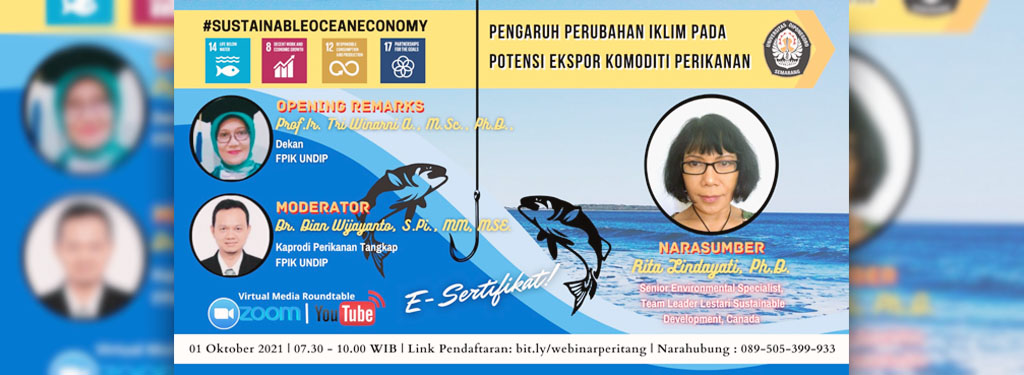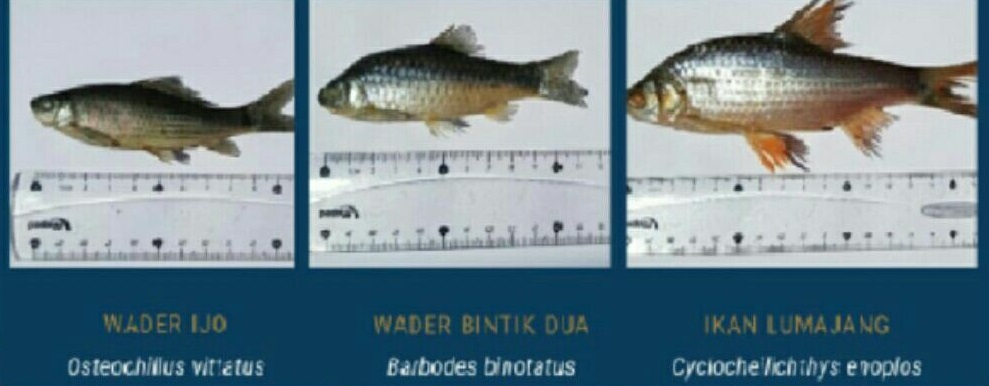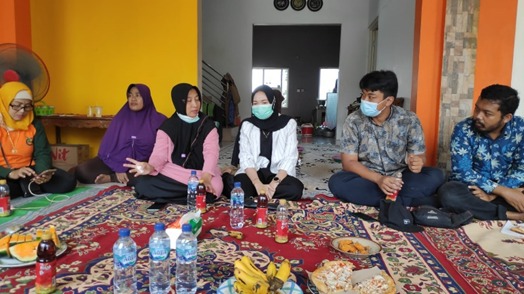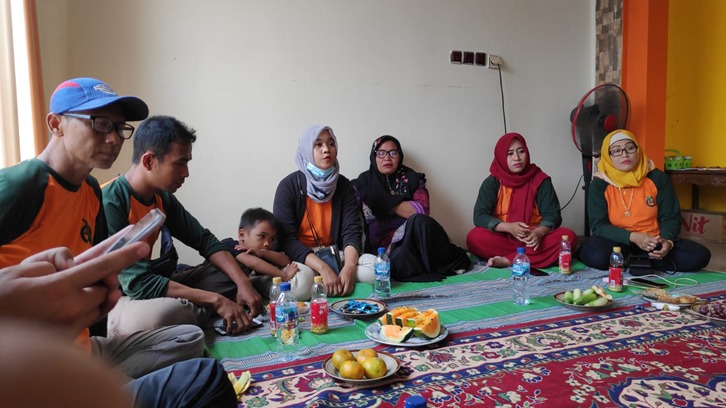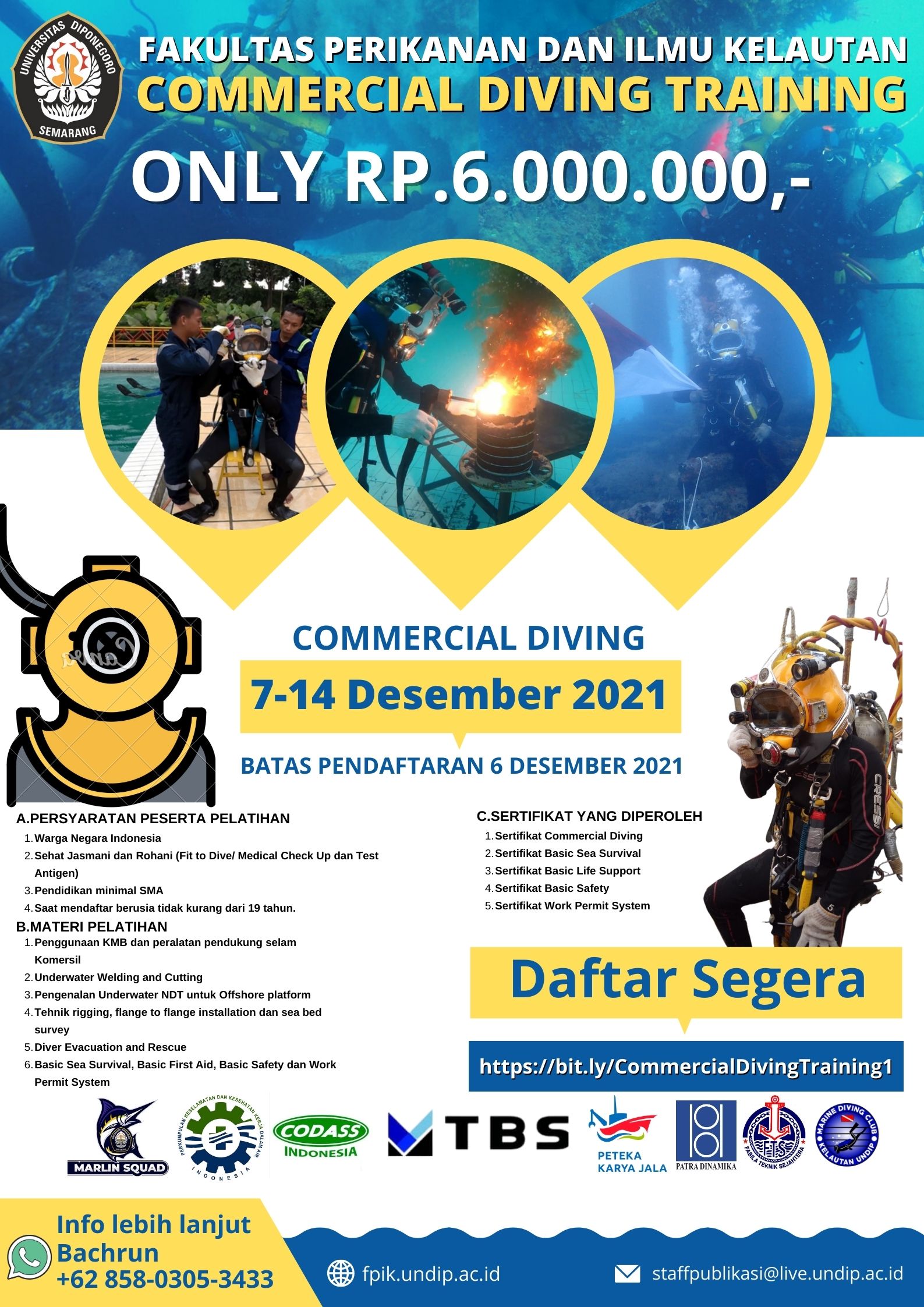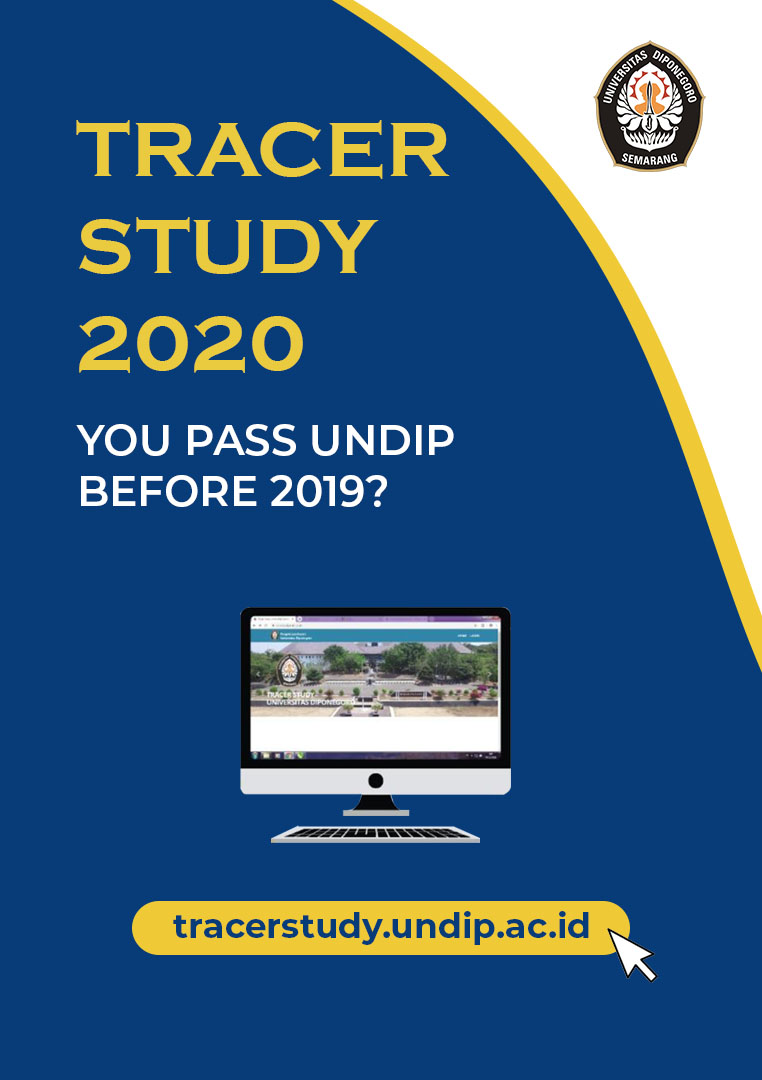FPIK, SEMARANG – The Department of Fishery Products Technology (THP) of the Faculty of Fisheries and Marine Sciences, Diponegoro University (FPIK UNDIP) invited two great alumni to come to the Diponegoro campus online in order to teach and share experiences with juniors. In the Alumni Teaching session with the theme “Strengthening Alumni Networks to Face Work Challenges”, the professional alumni referred to are Arlies Meta Nugraha, S.Pi, M.M. who is currently the Head of Account Management at Kalbe E-Health; and Ardhiansyah Rohman Palani, S.Pi who served as Sales Manager of PT Sinta Prima Feedmil.
The discussion by Arlies Meta Nugraha entitled “Challenges and Opportunities for Alumni Towards the World of Work”. He stated that even though he had a career in a field that was not the same as his studies, he considered this to be a challenge for students to face in the future. Arlies who is the second year batch of the THP FPIK UNDIP Study Program said that by entering the era of the industrial revolution 4.0, the opportunity to create a job market is increasingly wide open and does not demand only one discipline. He has proven that fishery graduates can occupy quite prestigious positions in the pharmaceutical company. “Therefore, opportunities will always be wide open on the condition that students are able to take advantage of these opportunities,” said Arlies.
According to Arlies, since 2019 the data on the number of university graduates is 1.3 million people, 18.7 percent or 244,000 are graduates of education science study programs. Of the total number of graduates, there are 1.2 million graduates from August 2019 to August 2020, of which 60 percent are not working or have no business, while 32.9 percent are trying to find work. This data, when compared with the trend of job availability according to the Central Statistics Agency (BPS), in February 2019 was still dominated by three sectors, namely the Agriculture, Forestry and Fisheries Sector (29.46 percent); Trade Sector (18.92 percent); and Manufacturing Industry Sector (14.09 percent). “Being a student today is required to continue to develop themselves to be more creative and innovative and to build as many networks as possible, especially with alumni. So that when they graduate, they already have adaptive human resources and are ready to compete in this autonomous and disruptive era,” he explained.
Meanwhile, Ardhiansyah Rohman Palani, one of the alumni who was invited to this activity, confirmed Arlies’ statement. Carrying the material entitled “Strengthening Alumni Networks Towards Superior Human Resources”, Ardhiansyah Rohman Palani reminded Human Resources (HR), to be one of the main sources in carrying out every activity in small organizations or large organizations. Organizations will demand their human resources to always be productive, innovative, and creative so that this organization can continue to survive and develop. “There are five characteristics of quality human resources, including being tenacious, diligent, innovative, honest and dedicated,” said Ardhiansyah.
With superior human resources, said Ardhiansyah, it will help Indonesia’s role in realizing a better life. On the other hand, the development of technology is also increasingly demanding that we continue to be innovative and creative. “Therefore, UNDIP graduates must be tenacious, diligent, innovative, honest and highly dedicated in order to become a superior resource in an era that is widely identified as VUCA or short for Volatility, Uncertainty, Complexity, and Ambiguity.”
The Dean of FPIK UNDIP, Prof. Ir. Tri Winarni Agustini, M.Sc, P.hD, when contacted on Thursday (18/11/2021) positively welcomed the Teaching Alumni activities. According to Prof. Tri Winarni, this activity involving alumni is the second series after the previous year, an activity involving alumni of the Department of Fishery Products Technology was held. “Seeing the enthusiasm of the participants, I think this activity can increase the students’ optimism in facing the challenges of the world of work. So I hope that this activity can be a forum for alumni to motivate younger siblings in improving their welfare, especially in opening job opportunities,” he hoped.
The teaching Alumni event which was held on the second weekend of November 2021 was attended by 195 participants consisting of lecturers and undergraduate students from the Fisheries Product Technology Study Program and study programs at FPIK UNDIP and held online. (Source: undip.ac.id | Tim Humas UNDIP)
